
10 Questions about Featured and Knowledge Panels with Tomas Ignatavicius @Builtvisible
With the recently extended capabilities of AWR for featured snippets and knowledge panel reporting, we thought it'd be interesting to get an expert view on how these results are currently influencing the searcher’s behaviour.

This spring at Brighton SEO, we reached out to Tomas Ignatavicius, SEO Consultant @ Builtvisible, and asked him about them.
Tomas has expertise in SERP analysis from an international SEO perspective, so there’s a lot to learn from his experience. ?
Q1: Why is it important to know what keywords are triggering featured snippets and knowledge panels?
Tomas: Well, it’s quite simple. Do you want to get featured snippets? If not – this information is totally useless to you. If you do, you need to know when they are triggered.
It’s possible to categorise keywords into endless groupings (commercial, informational, general, local, branded, top of the funnel, etc.), but in my opinion there are really only two that matter.
I can make money from it.
I can’t make money from it.
Everything else falls into those two groups.
That doesn’t mean that there is no value in categorizing keywords into more detailed groupings. There is, because Google does have observable patterns for when different SERP features are triggered, and you really need to dig into the searcher intent to figure that out.
The point I’m making here is that if the search query is of “informational” intent it can still make you money and it may still be worth pursuing a snippet. The vast majority of affiliate businesses work with the informational content model, for instance.
The other purpose of knowing what keywords trigger featured snippets is for what I call the “nah, thanks” test. These are the search queries where you are never likely to get a snippet. As an example, it’s extremely unlikely you will ever get a position zero snippet on “who is the queen of England”. You might be selling royal family paraphernalia and would love to get one, but be realistic.
Most likely the best you can hope for in cases like this is being featured within the “People also ask” SERP feature, so either go for them (after a very thorough evaluation of what competition you’ve got there) or just drop the keyword altogether. It’s fine. There are millions more to target and time is a finite resource.
Q2: What would be the main differences in SERP patterns for informational keywords, versus commercial?
By looking at our monthly SERP CTR research data, we're noticing informational keywords trigger a lot more featured snippets and knowledge panels than commercial keywords. There are some cases where a keyword triggers a featured snippet and ads on the same search page, mostly when the search intent is not stated. Here is an example:
Informational Intent
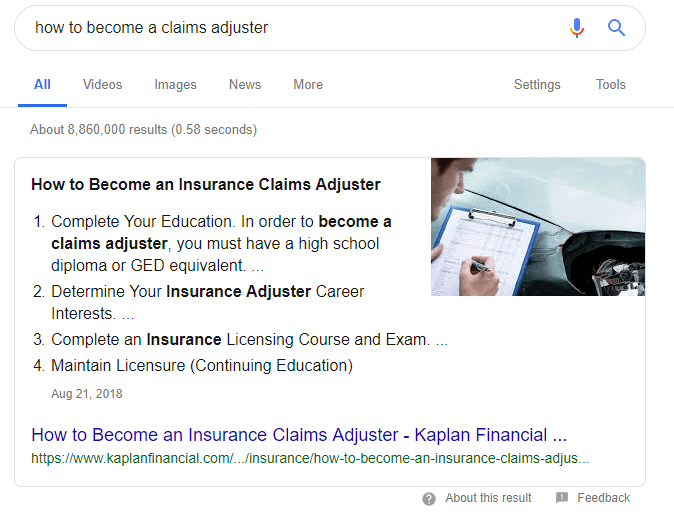
Commercial Intent
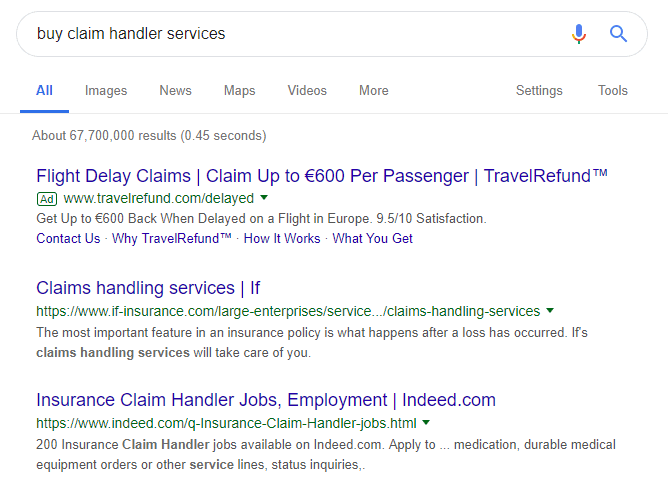
Unstated Intent
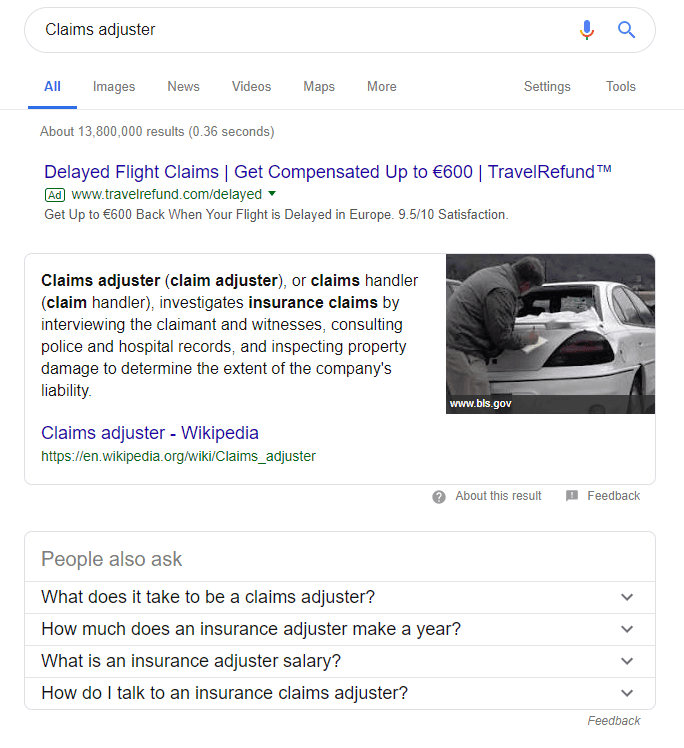
Tomas: I would say that the intent is much clearer with commercial queries. Usually you want to buy something. That’s pretty black and white. It’s also a necessity that you are sent to an external website to fulfill the intent of your search.
With that in mind, it does not make sense to show the same type of SERP features as for informational/navigational searches. Additionally, it’s worth remembering that paid ads in search are Google’s primary revenue stream, so it’s inevitable that ads will take up more real estate on this type of search.
That being said, there may still be opportunities on commercial searches. If, for example, you search “buy tv” you still get local results, a “research” article carousel, picture results, “people also ask”, etc.
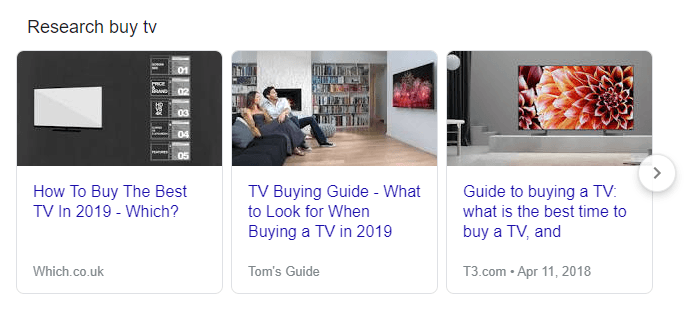
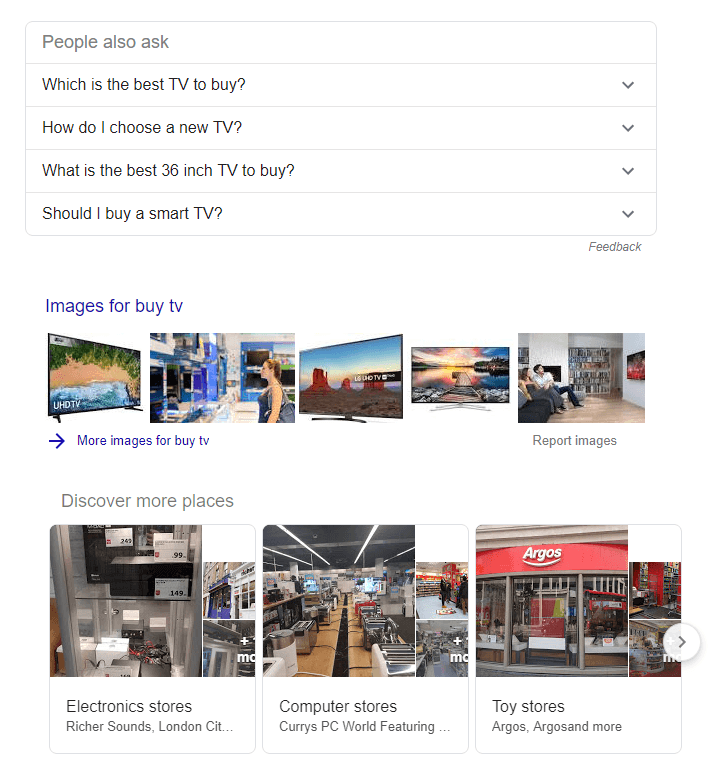
Conversely, with informational search you are typically seeking an answer to a question. In this scenario, you may not need to visit a website if the query is relatively simple. Equally, queries can often be more ambiguous, in which case showing a SERP with a range of features catered towards different intents makes perfect sense. As above, Google makes money through Ads so if it is possible to serve ads they will usually do so.
Q3: How about desktop versus mobile search? Are users behaving differently in terms of intent?
February stats show a wider gap between Google CTR for commercial and informational intent keywords on Position 1. The data is based on GSC keywords and related Average Position metric (the data set includes keywords that trigger rich snippets, and positions held by Featured Snippets and other types of features listed with URLs).
Desktop Organic Search in US
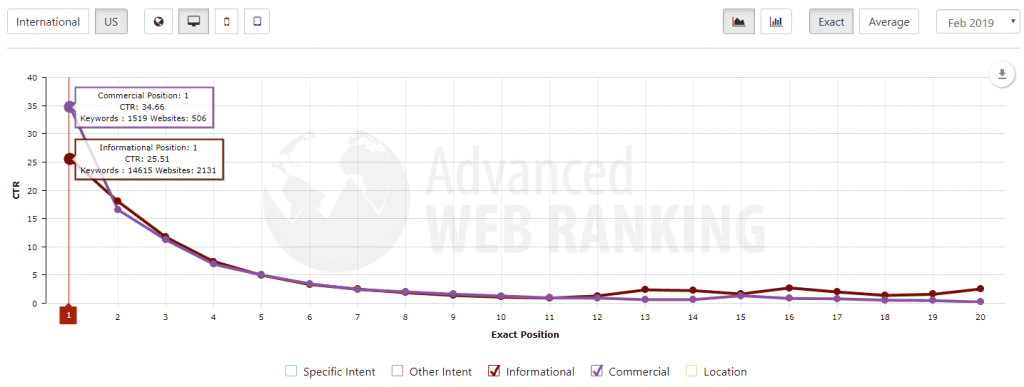
Mobile Organic Search in US
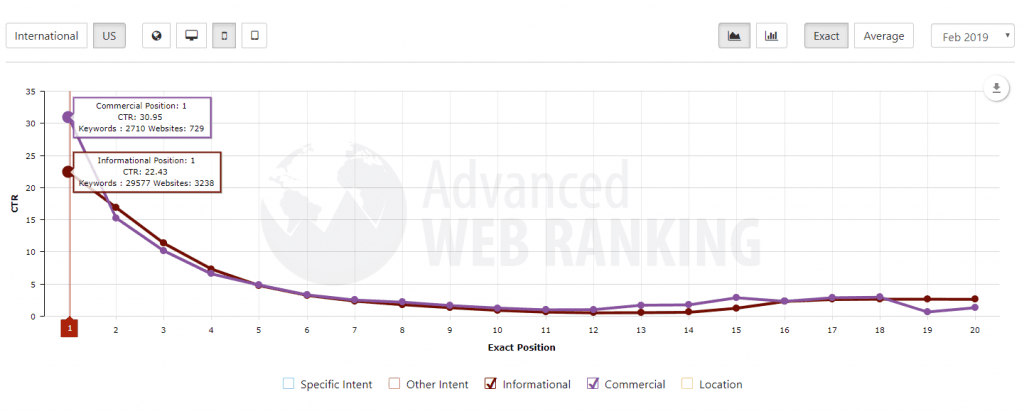
It’s an interesting shift compared to data from 2014, when we started the study. At that time, informational keywords had a higher Organic CTR than commercial ones.
Desktop Organic Search in US 2014
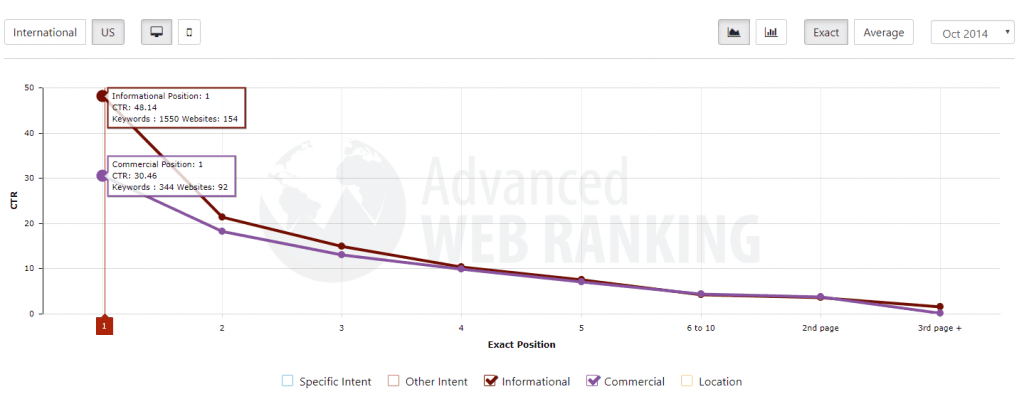
Mobile Organic Search in US 2014
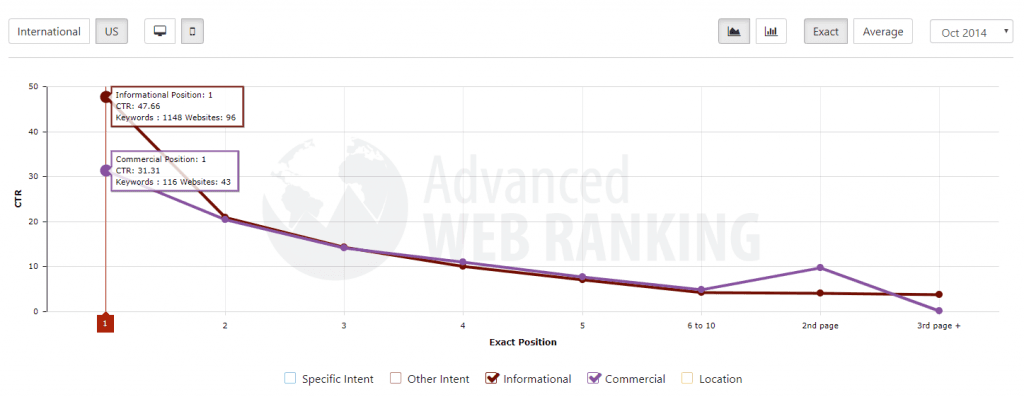
Tomas: In recent years, the number of search results triggering features snippets – and the number of search features shown in general – have massively increased. As a user (so ignoring the commercial perspective) I am really happy with how this is managed. A lot of my searches are just simple checks with 1-2 sentence answers and it’s great not to be forced to click on any of the results and wait for 15s the website to load.
I also remember the times when organic position 1 was a guaranteed CTR of 40%+, but ultimately search – and user search behaviour in general – is changing, which is not something that we can control. Ultimately, as an SEO, you have to be able to adapt to changes, both in terms of user behaviour and the wider search landscape.This is actually one of the reasons I am still an SEO after almost 2 decades. It never gets boring.
It would be really interesting to the above graphs for a much larger sample of keywords and websites, as the dataset is on the smaller side. I think the results would likely be similar, but it would make it more meaningful and allow for more definitive conclusions to be drawn.
Q4: Is the growing number of featured snippets in mobile a sign that voice search is expanding?
This Backlinko study shows that 40.7% of voice search results are pulled from Featured Snippets.
Looking at the feature spread on desktop vs. mobile on the AWR Google SERP Features tool, we can see that the same keywords trigger more than twice as many featured snippets on Mobile, than they do on Desktop.
Featured Snippets Spread Desktop vs. Mobile in US
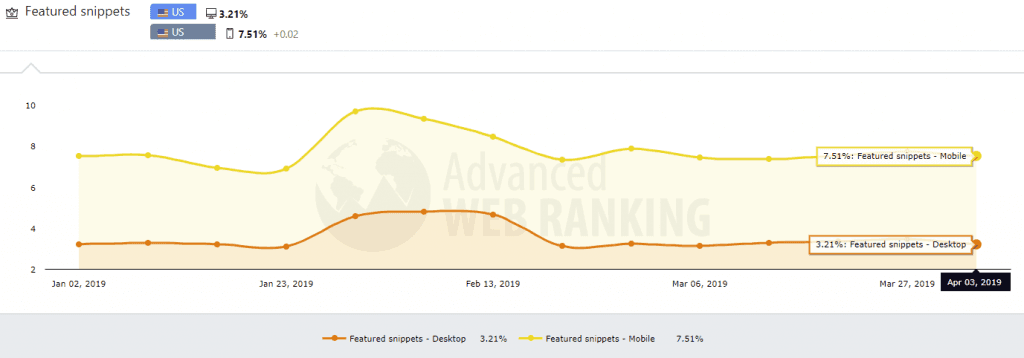
Tomas: It is hard to dispute that voice search is expanding. Both Amazon and Google are selling record numbers of Google Home and Alexa devices. There are also other personal assistants such as Siri and Bixby, although these are currently lagging behind and aren’t a necessity for the voice search to grow exponentially.
My friends still laugh at me when I talk to my phone with “Hey google, what’s this or that”. I love voice search and have both leading devices at home myself. Weather, news, radio, controlling home devices – it’s awesome.
There is a “however”, though. These devices are primarily useful for informational or navigational searches, rather than commercial searches. Yes, there are exceptions. For example I see a future in voice for re-ordering the same items e.g. “Alexa, re-order the dishwasher tablets”, or a purchase where you already know the exact item you want and where you’re ordering it from. Here Alexa and Amazon should be leading the way.
For example, ordering a specific book to your Kindle device. That being said, I’d describe this more as voice ecommerce than search – at least in the traditional sense, because you are typically selecting from a range of providers to make a purchase.
For the future of organic voice search specifically, 40.7% is a pretty interesting number. I believe it would be great for your branding and authority, as the answers usually begin with “according to [your website]”. This could be a nice multichannel opportunity, especially if combined with commercial keywords. For instance, for the query “what Samsung tv is the best” it would be great for the searcher to hear “according to [your brand] the best Samsung TVs are…..”.
Q5: Should we expect a similar growing trend of the Featured Snippets on international markets as well?
Featured Snippets on Mobile in the US, UK and JP
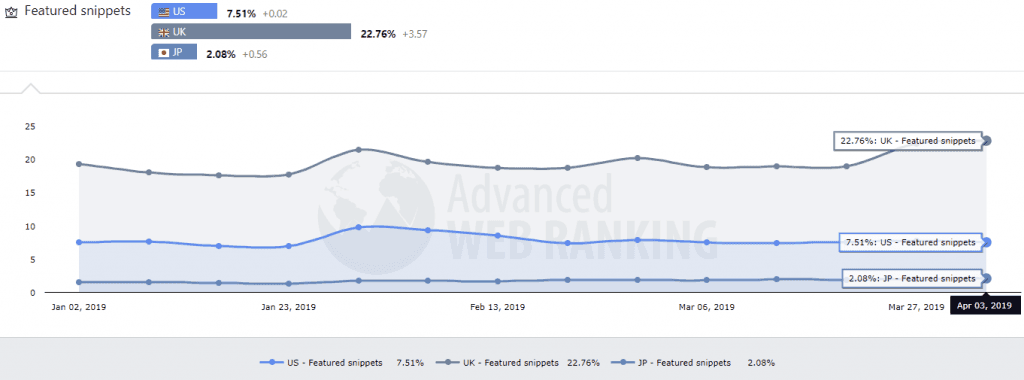
Tomas: Absolutely. I believe the disparity between markets is more of a reflection of Google’s limitations in terms of meaning and intent recognition for non-English queries. Obviously, they can translate and process simple things like “what time is the Manchester United match” but how would they do with “kada zaliai balti siandien losia kase”? This is mistyped Lithunian and in literal terms means “when the greens and whites play ball today” but the actual meaning is “When Zalgiris plays a basketball match today”. Zalgiris is a basketball team in Lithuania and their uniforms are traditionally green and white. This query is very vague and difficult for Google to understand, so I would not expect them to serve proper rich snippets. Not yet, anyway.
Their algorithms are progressing at a scary pace, but language is continuously evolving and there are thousands of different languages, dialects, slang terms, etc. Being able to understand everything is likely an impossibility, but I do think that Google will continue to improve and we will therefore see as a steady increase in featured snippets within international markets.
Q6: What do you think about the content snippet that Google is blending from competitor URLs?
At the Advanced Search Conference in London, back in February, Em North from P&O Cruises mentioned that Google seems to be stealing away traffic from sites that are ranking with featured snippet, because people find all the information they need, so they don’t actually click on the result anymore. Thus, Google is getting the traffic for content pushed by the high ranking domains.
During the periodic tests, we’ve found a lot of cases where these types of results show content from competing URLs. Here are some examples:
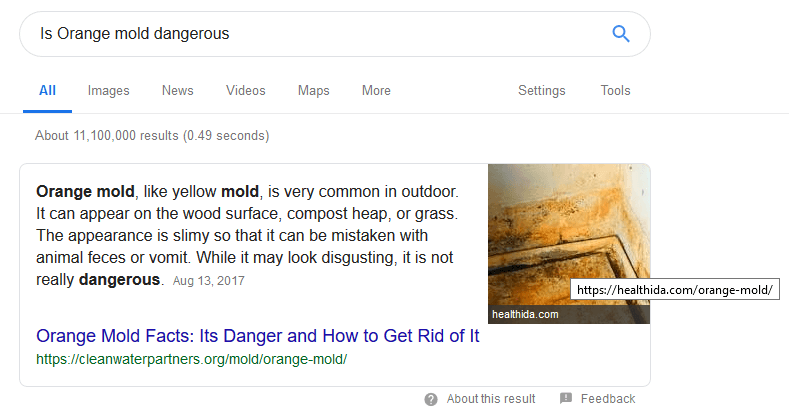

We even found cases on mobile search where the featured snippet includes two “blue links” from two different domains.
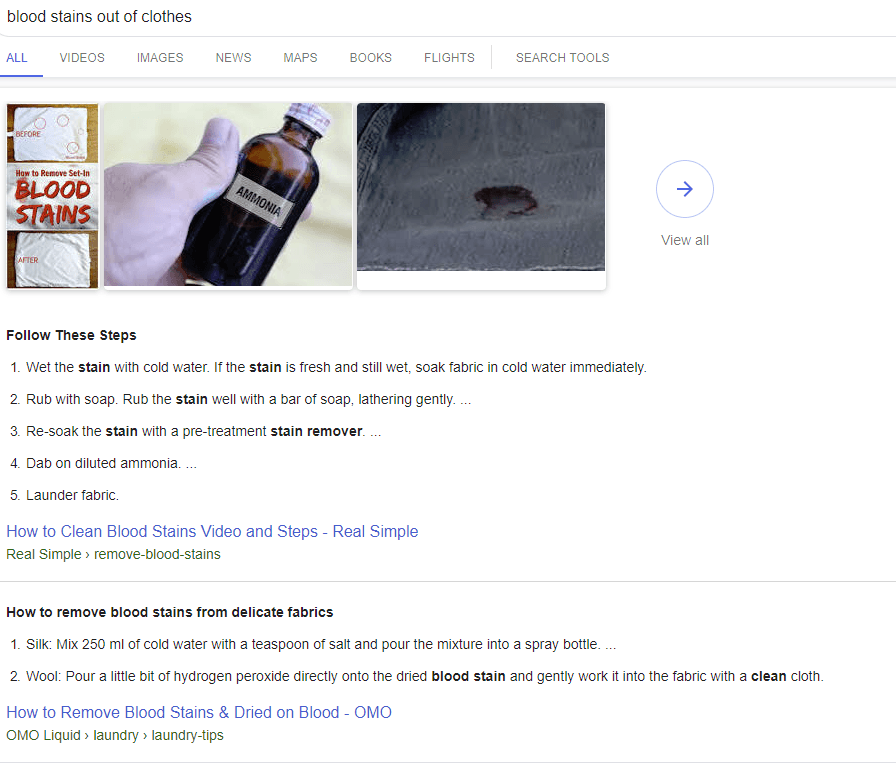
Tomas: There are two different issues here:
Showing multiple snippets for the same query.
Pulling the same snippet from multiple locations.
I have no problem with the first one, as the links are clearly visible. As a user, I actually very much like it. As a webmaster I am not super hyped, but there are changes that can be made to encourage a user to click. Making a list longer, for example, or incorporating a soft CTA – get creative.
The second issue is more of a problem for me. Consider the following scenario: Google puts my written content in a rich snippet. I might be OK with that because they credit me with a link in the snippet. But this wouldn’t be the case if they suddenly put my competitor's logo next to it, or added a low-resolution spammy screenshot. Conversely, I would also be extremely unhappy if they took my copyrighted picture and put it next to content I deeply disagree with.
There are some interesting implications for Google here, especially with Article 13 of the EU Copyright Directive. The recent fines they have received are potentially the tip of the iceberg and they may be forced to adapt their approach – in Europe at least.
Q7: How do you feel about the amount of traffic these results are generating?
In his presentation at SMX Munich, Rand Fishkin showed that Google searches resulting in no CTR have grown by 30% in the last two years.
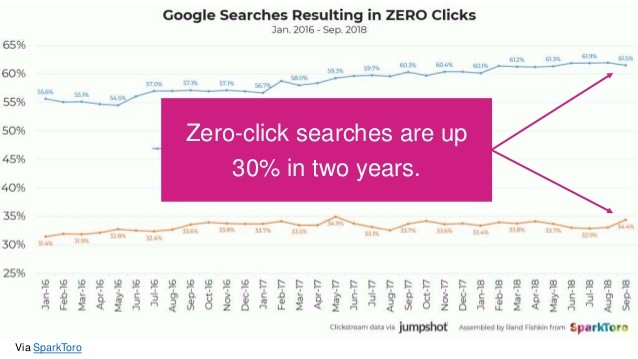
Tomas: It’s not a great trend, although I can see why they’ve introduced it for some of the queries. For example, if I was to query something like “3 x 4” it’s great to get the answer within the SERP itself and it’s a fairly simple query, so didn’t necessarily need a 3rd party website to answer it.
That said, it is irrefutable that some sites answering more complex queries have been negatively impacted and I think some sort of revenue share model needs to be introduced. Google’s hand may be forced in this regard if more anti-trust suits are levied against them. Again, I think that the EU will lead the way here.
Q8: Is it still worth the effort to win the featured snippets and knowledge panels if part of the traffic goes away?
Tomas: The number of “No click” search results are increasing, but that does not mean that you will not get more clicks when you are featured within featured snippet in general. Featured snippets are only likely to increase in prominence over the short term and you are more likely to get traffic with them than without. Get more rich results than your competitors and you will definitely be better off.
Q9: What keywords should we focus on in this context? High volume or high CTR?
Tomas: Neither. Focus on the keywords that are likely to make you money. A query could have a singular search per month, but if you know you will make a sale out of it, it’s infinitely better than having position 1 for a query with 100k monthly search that makes 0 sales. A small caveat being if your business model relies on ads, articles that drive the most search volume are likely to be the ones that make you money.
Q10: What would be the best advice for winning featured snippet and knowledge panel positions?
Tomas: SEO is simple. You just need to have the best content in the world for a specific query. It can’t get easier than that, right? ?
On a more serious note, I believe the process should look something like this:
Figure out where rich snippets are available.
Figure out if you want them.
Figure out how they got there.
Do better.
Obviously, the fourth step is the most difficult. It could be as easy as changing your <h1> to one that is more closely related to the search query, or it could be multiple factors including decreasing page loading speed/TTFB. I would still like to give you a couple of pointers of where to start.
First and foremost, get into the Top 10. The higher the better, but Top 5 is usually good enough.
Markup. Seriously – markup everything you can. Schema is awesome and the better Google understands your content, the higher your chance of being shown in a snippet.
Check what content has the snippet now and structure yours accordingly. If a table is being shown, then you’ll likely need a table. The same is true of lists. If a paragraph is being shown, ensure that your content is structured so that it features a short answer as a separate paragraph and then expand on the answer below if necessary.
Don’t forget to optimise your images and add the tags needed.
Try to be as specific as possible answering your desired search query.
Experiment. If your initial setup did not work, just tweak it and see what happens.
Thanks so much, Tomas, for thoroughly answering all our questions!
What's your take on this?
So, what do you think? Let's take this opportunity to build up on Tomas' answers and continue the conversation. What are your thoughts and experiences with featured snippets? Feel free to share your own answers to our questionnaire in the comments section below.
Article by
Aura Dozescu
Aura Dozescu was a Customer Care Specialist for AWR. Passionate about Internet Marketing and SEO technologies, she worked closely with SEO software developers to implement the feedback received from customers.
stay in the loop





